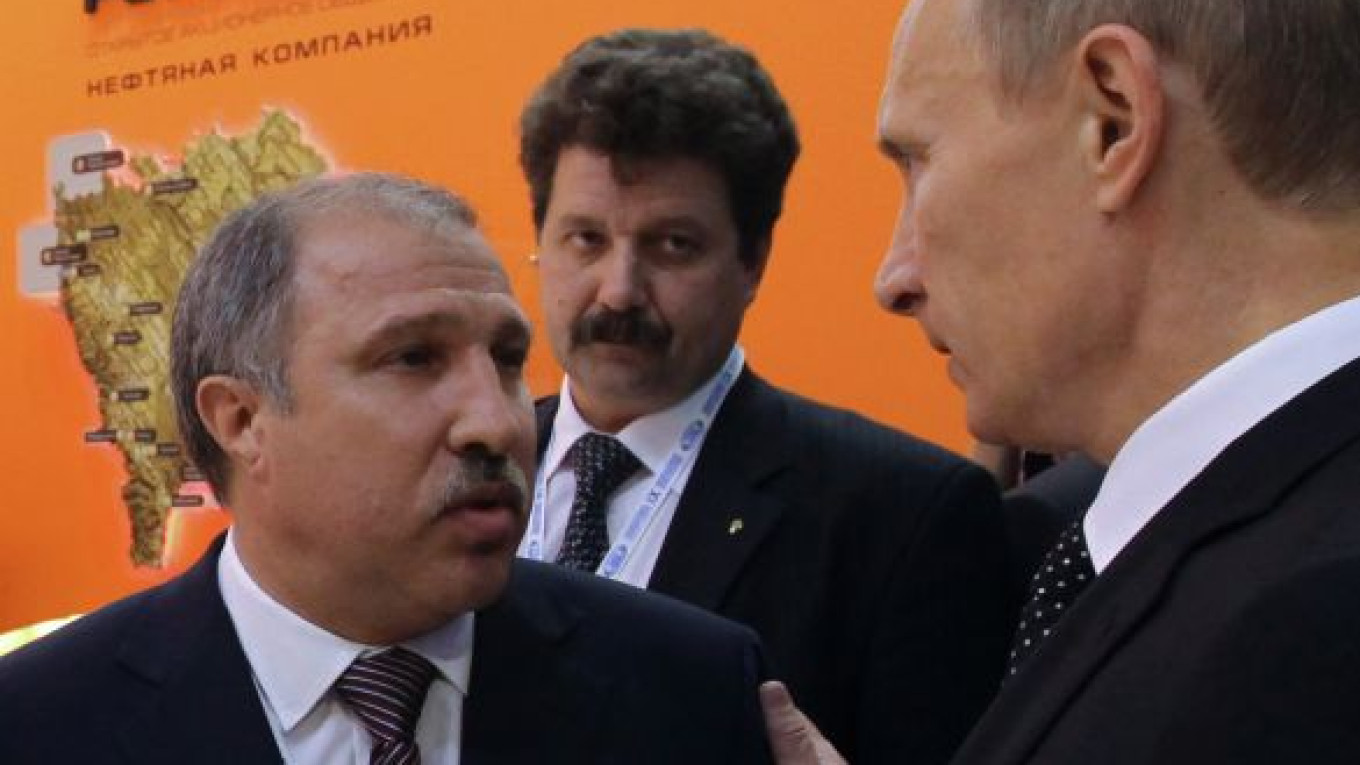SOCHI — The Finance Ministry on Friday rejected proposals from Rosneft to reduce export duties for its Vankor oil deposit, saying the Siberian project already enjoys a discounted rate.
"The internal rate of return for Vankor is 17 percent — it is quite a sufficient premium," Deputy Finance Minister Sergei Shatalov said in Sochi.
Rosneft's newly appointed president, Eduard Khudainatov, had asked the government earlier Friday to lower the duty for Vankor, allowing Rosneft to step up investment in the huge oil field in East Siberia.
"If it is possible to lower [the rate] to at least $100 [per ton] for the next two years, we would be able to provide investments for Vankor that would bring 250 billion rubles [$8 billion] of tax revenues annually to the state," Khudainatov told reporters.
Russian oil companies are lobbying for a more benign tax regime so that they are able to invest in production and exploration as output at mature West Siberian fields declines.
On Thursday, Vedomosti reported that Rosneft's powerful chairman, Deputy Prime Minister Igor Sechin, had asked Prime Minister Vladimir Putin to extend tax breaks on Vankor until the end of 2013.
Khudainatov later said in an interview to Reuters that the export duties on East Siberian fields were likely to be increased from 2011 to the level for the rest of the country's crude deposits.
Vankor, Russia's largest oil development, and other oil fields in East Siberia had enjoyed exemption from the export duty until July 1, when a discounted rate was imposed as the government seeks to narrow a budget gap.
A normal rate for Vankor next year could cut Rosneft's earnings before interest, taxes, depreciation and amortization by about 20 percent from the level under the exemption, Lev Snykov and Svetlana Grizan, oil analysts at VTB Capital, said in June.
The export duty on crude from East Siberian fields is to fall by 5.9 percent to $82.17 per ton for next month. Export fees for other fields will fall about 3 percent to $266.5 per ton.
Khudainatov also said his company would like the state to introduce a zero export duty for a smaller field, the Yurubcheno-Tokhomskoye — which Rosneft plans to launch in 2013 — for the next five years.
"Calculations are ready and submitted to the government. Difficult discussions with the Economic Development Ministry are under way," he said.
The state-controlled producer has said it may delay the start of commercial output at the deposit until it gains clarity on how the government will tax the project.
The government plans to consider possible tax breaks for the field before the end of September, Shatalov said.
Earlier this month, Khudainatov, a former first deputy president, took over from Sergei Bogdanchikov, who had run the company since late 1990s and oversaw its spectacular rise to the top spot among Russian oil firms.
His plans for Rosneft include hiring new staff and considering projects in Iraq to further production growth. The company is working on a business plan and will present it at the end of September, Khudainatov said.
"Life doesn't stand still," Khudainatov told reporters. "If we want to raise the bar even higher for the company's development of oil production and refining, of course there may be a need to renew staff and attract world-class specialists."
Rosneft has pursued potential cooperation with Crescent Petroleum in Iraq. In June, the companies agreed on a drilling venture in the United Arab Emirate sheikdom of Sharjah. The Russian producer is also developing a concession in Algeria and helping with fields of heavy oil in Venezuela.
"We are discussing" possible projects in Iraq, Khudainatov said, without elaborating.
Rosneft expects to pump 118 million metric tons of crude this year, Khudainatov said, up from 116.3 million tons last year, according to the Energy Ministry.
(Bloomberg, Reuters)
A Message from The Moscow Times:
Dear readers,
We are facing unprecedented challenges. Russia's Prosecutor General's Office has designated The Moscow Times as an "undesirable" organization, criminalizing our work and putting our staff at risk of prosecution. This follows our earlier unjust labeling as a "foreign agent."
These actions are direct attempts to silence independent journalism in Russia. The authorities claim our work "discredits the decisions of the Russian leadership." We see things differently: we strive to provide accurate, unbiased reporting on Russia.
We, the journalists of The Moscow Times, refuse to be silenced. But to continue our work, we need your help.
Your support, no matter how small, makes a world of difference. If you can, please support us monthly starting from just $2. It's quick to set up, and every contribution makes a significant impact.
By supporting The Moscow Times, you're defending open, independent journalism in the face of repression. Thank you for standing with us.
Remind me later.


